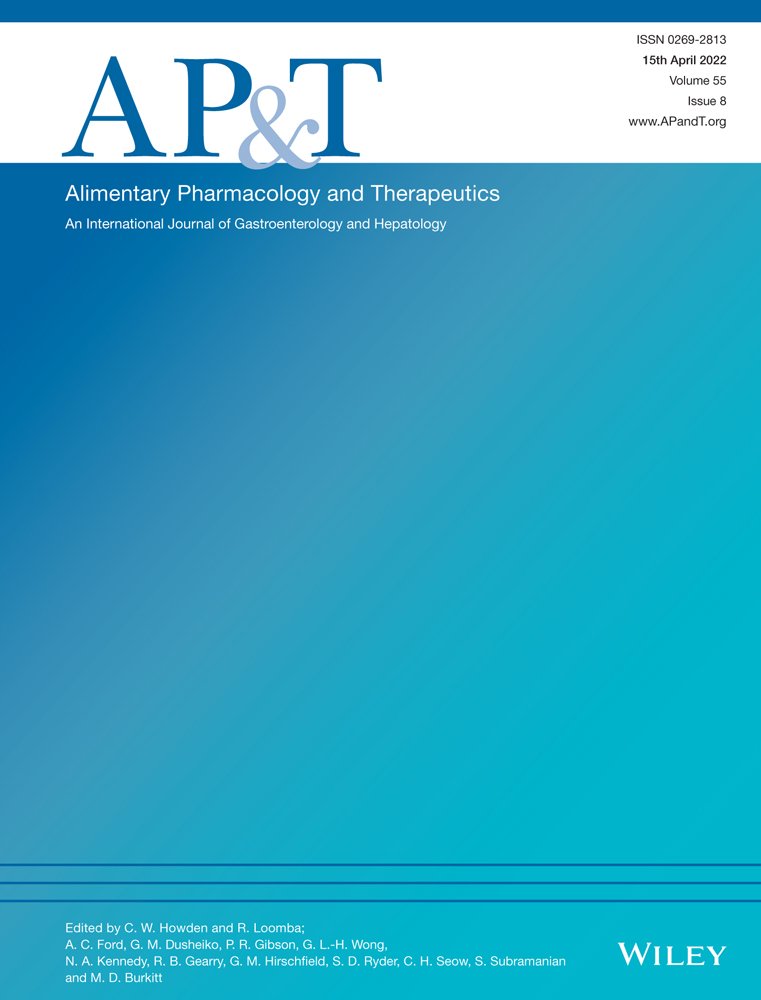Letter: skipping breakfast is associated with an increased long-term cardiovascular mortality in metabolic dysfunction-associated fatty liver disease (MAFLD) but not in MAFLD-free individuals. Authors' reply
LINKED CONTENT
This article is linked to Xie et al papers. To view these articles, visit https://doi.org/10.1111/apt.16727 and https://doi.org/10.1111/apt.16849
We appreciate Wu and colleagues' interest in our work.1 First, we agree that the definition of overweight/obesity as body mass index (BMI) ≥ 25 kg/m2 would be better for Caucasians.2 In this study, there were 3631 non-Hispanic whites, 2761 non-Hispanic blacks, 3097 Mexican Americans and 437 others. Considering the majority of Ethnicity in The National Health and Nutrition Examination Survey (NHANES) is Caucasians, BMI ≥ 25 kg/m2 was selected as the definition of overweight or obesity for re-analysis. There were 367 fatty liver individuals with BMI between 23 and 25 kg/m2, and 197 of those fatty liver individuals had at least two metabolic abnormalities and met the metabolic dysfunction-associated fatty liver disease (MAFLD) criteria. The remaining 170 individuals had only one or less metabolic abnormality. If we excluded those 170 individuals from the MAFLD group, but included them in the MAFLD-free group, and reanalysed the data. We found that the adjusted hazard ratio (HR) (95% confidence interval [CI]) for cardiovascular mortality of MAFLD individuals who never had breakfast was 2.833 (1.505–5.331). This is similar to the results in the article (HR: 2.850, 95% CI: 1.490–5.452). We also reanalysed the impact of skipping breakfast in MAFLD-free individuals. We found that, compared with MAFLD-free individuals who consumed breakfast every day, the fully adjusted HR (95% CI) for cardiovascular mortality were 1.566 (0.724–3.387) in never groups, which is also similar to the results in the article (HR: 1.526, 95% CI: 0.701–3.326). These re-analysis results show that the definition of overweight/obesity as BMI ≥ 25 or ≥ 23 kg/m2 does not significantly change the major findings of our study.
Second, we agree with the comments that blood pressure (BP) ≥130/85 mmHg or with specific drug treatment belongs to one of the metabolic dysregulation conditions in MAFLD criteria. However, the definition of hypertension as BP > 130/80 mmHg or with specific drug treatment is still recommended in the current hypertension guidelines.3 Thus, we think it may be more appropriate to use this standard as a covariate adjusted in the Cox regression.
Third, it is true that the role of different medications between MAFLD and MAFLD-free patients in cardiovascular risk was unknown. Due to the lack of FDA-approved drug therapies for MAFLD, it is ambiguous for evaluation of MAFLD drugs used in the population.4 Besides, considering that patients may have different types, dosages and duration of medication in clinical practice, it is unrealistic to group them separately and analyse the potential influence of different medications. Further studies are needed to analyse the potential association between MAFLD medications and cardiovascular risk.
Fourth, we agree that further considerations are needed on different lifestyles, including staying up late or working on the night shift. Further studies are needed in this area.
In conclusion, our large long-term cohort study suggests the advantage of consuming breakfast against negative cardiovascular outcomes in MAFLD individuals and sheds new light on MAFLD management.
ACKNOWLEDGMENTS
The authors' declarations of personal and financial interests are unchanged from those in the original article.5
AUTHOR CONTRIBUTIONS
Jiarong Xie: Formal analysis (lead); writing – original draft (lead). Lei Xu: Writing – review and editing (supporting). Chengfu Xu: Writing – review and editing (lead).




